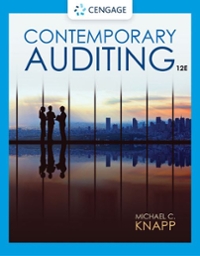Woodrow Wilson Robinson and Albert Leroy Hunt lived and worked in Huntington, West Virginia, a city of
Question:
Woodrow Wilson Robinson and Albert Leroy Hunt lived and worked in Huntington, West Virginia, a city of 60,000 tucked in the westernmost corner of the state. The bluecollar city sits on the south bank of the Ohio River. Ohio is less than one mile away across the river, while Kentucky can be reached by making a 10-minute drive westward on Interstate 64. Woody and Al were born six days apart in a small hospital in eastern Kentucky, were best friends throughout grade school and high school, and roomed together for four years at college. A few months after they graduated with business management degrees, each served as the other’s best man at their respective weddings.
Following graduation, Al went to work for Curcio’s Auto Supply on the western outskirts of Huntington, a business owned by his future father-in-law. Curcio’s sold lawnmowers, bicycles, and automotive parts and supplies, including tires and batteries, the business’s two largest revenue producers. Curcio’s also installed the automotive parts it sold, provided oil and lube service, and performed small engine repairs.
Within weeks of going to work for Curcio’s, Al helped Woody land a job with a large tire wholesaler that was Curcio’s largest supplier. Goodner Brothers, Inc., sold tires of all types and sizes from 14 locations scattered from southern New York to northwestern South Carolina and from central Ohio to the Delaware shore. Goodner concentrated its operations in midsized cities such as Huntington, West Virginia; Lynchburg, Virginia; Harrisburg, Pennsylvania; and Youngstown, Ohio, home to the company’s headquarters.
Founded in 1979 by two brothers, T. J. and Ross Goodner, nearly three decades later Goodner Brothers’ annual sales approached $40 million. The Goodner familydominated the company’s operations. T. J. served as the company’s chairman of theboard and chief executive officer (CEO), while Ross was the chief operating officer (COO). Four second-generation Goodners also held key positions in the company.
Goodner purchased tires from several large manufacturers and then sold those tires at wholesale prices to auto supply stores and other retailers that had auto supply departments.
Goodner's customers included Sears, Walmart, Kmart, and dozens of smaller retail chains. The company also purchased discontinued tires from manufacturers, large retailers, and other wholesalers and then resold those tires at cut-rate prices to school districts, municipalities, and companies with small fleets of automobiles.
Goodner Brothers hired Woody to work as a sales rep for its Huntington location.
Woody sold tires to more than 80 customers in his sales region that stretched from the west side of Huntington into eastern Kentucky and north into Ohio. Woody, who worked strictly on a commission basis, was an effective and successful salesman.
Unfortunately, a bad habit that he had acquired during his college days gradually developed into a severe problem. A gambling compulsion threatened to wreck the young salesman's career and personal life.
Woody bet on any and all types of sporting events, including baseball and football games, horse races, and boxing matches. He also spent hundreds of dollars each month buying lottery tickets and lost increasingly large sums on frequent gambling excursions with his friend Al. By the summer of 2006 when Woody, Al, and their wives visited Tunica, Mississippi, Woody's financial condition was desperate. He owed more than $50,000 to the various bookies with whom he placed bets, was falling behind on his mortgage payments, and had "maxed out" several credit cards. Worst of all, two bookies to whom Woody owed several thousand dollars were demanding payment and had begun making menacing remarks that alluded to his wife, Rachelle.
Questions
1. List what you believe should have been the three to five key internal control objectives of Goodner’s Huntington sales office.
2. List the key internal control weaknesses that were evident in the Huntington unit’s operations.
3. Develop one or more control policies or procedures to alleviate the control weaknesses you identified in responding to Question 2.
4. Besides Woody Robinson, what other parties were at least partially responsible for the inventory losses Goodner suffered? Defend your answer.
Step by Step Answer:






